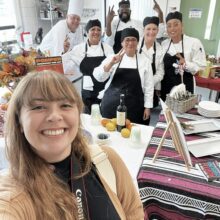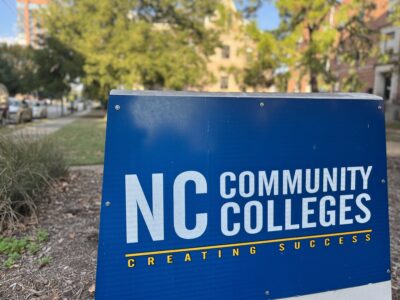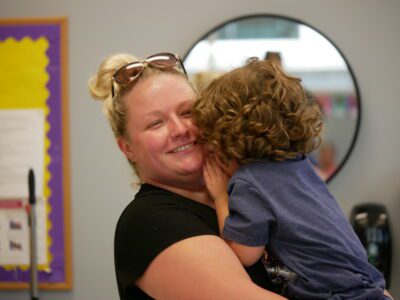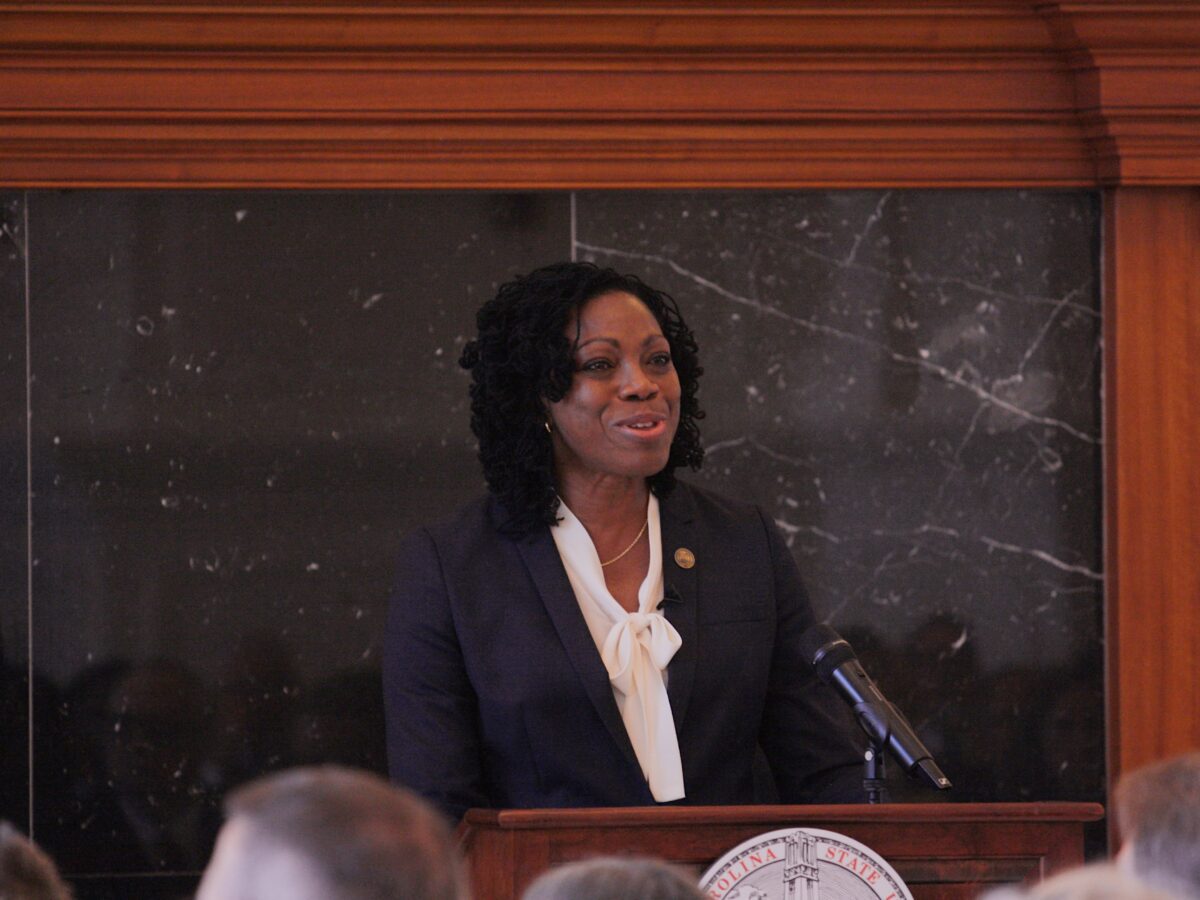
|
|
Prince George’s Community College President Dr. Falecia D. Williams challenged community college leaders “to dare to be extraordinary” in the midst of change at the 2023 Dallas Herring Lecture on Tuesday.
Williams, who gave the keynote address of the lecture, discussed strategies for community college leaders as they think about the lasting impacts of the pandemic on their institutions.
“Today, we stand at a crossroads, faced with the profound question: ‘Did the COVID-19 pandemic act as a catastrophe or a catalyst for change?’” Williams said. “This question looms large, especially in the realm of higher education, and community colleges find themselves at the heart of this dilemma.”
Whether planned or unexpected, Williams said that change has a profound impact on our individual and collective journeys. She specifically noted the impact of the pandemic on community college enrollment and funding.
In North Carolina, most community colleges never fully shut down during the pandemic. The introduction of remote and hybrid learning — along with the challenges faced by their students — forced many of the colleges to approach learning with more flexibility, responsiveness, and innovation.
While change can bring challenges, Williams also said it brings the opportunity for innovation — if we are willing to let go of stability and how things have been done in the past.
“Community colleges must navigate an unprecedented transition,” she said. “Despite these challenges, it falls upon us as the leaders and the practitioners to declare that the pandemic was more of a catalyst for transformation than a harbinger of our downfall.”
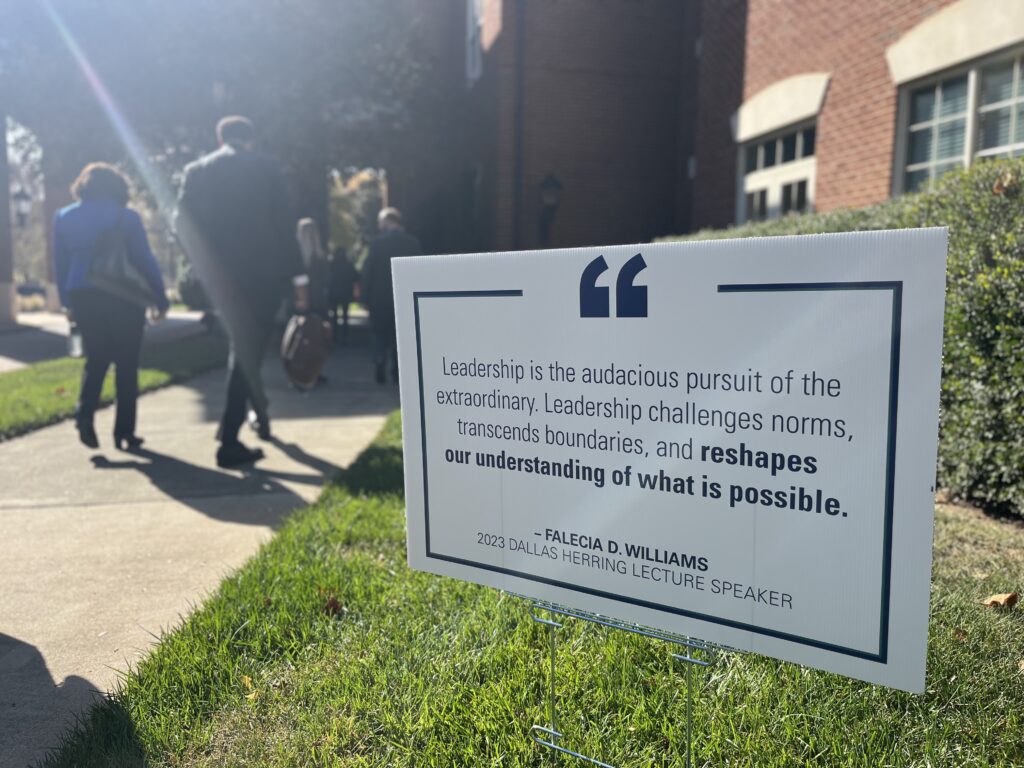
National community college leaders like Williams have delivered the Dallas Herring Lecture since 2015. Tuesday’s event marked the ninth lecture since its inception.
The lecture honors the late W. Dallas Herring – the “father” of the N.C. Community College System (NCCCS) – and is hosted by North Carolina State University’s College of Education and the Belk Center for Community College Leadership and Research.
Dr. Audrey J. Jaeger, executive director of the Belk Center, acknowledged both Herring’s many education contributions in North Carolina, along with his endorsement of segregation early in his career.
What I hope you recognize is that there’s a lot for us to learn from Herring. He reminds us to stop putting people on pedestals and black lists, but to see one another how we really are — human beings who are capable of great mistakes, capable of getting it wrong… capable of changing your mind, and making extraordinary contributions to our communities. You have an opportunity to join hands with imperfect people in pushing the boundaries and carrying Herring’s important legacy forward. I know our students and our communities demand it.
Dr. Audrey J. Jaeger, executive director of the Belk Center
NCCCS President Dr. Jeff Cox said representatives from all 58 colleges across the state joined Tuesday’s lecture, either in person or virtually. Each of the colleges, he said, was excited to embrace Tuesday’s message of “being extraordinary.”
In North Carolina, Cox said, being extraordinary will mean expanding short-term credentials and degree pathways, prioritizing innovation and agility, and “working at the speed of business” to prepare students and communities for new industries in the state.
“This will take time and resources as well as our perseverance and our collaboration, but I’m confident we’re on the right path,” Cox said. “I look forward to seeing the progress we’re going to make and the solutions that will develop together in the months and years ahead. And I know our discussion this afternoon will play a key role in pushing those solutions forward.”
You can watch the 2023 Dallas Herring Lecture on Youtube.
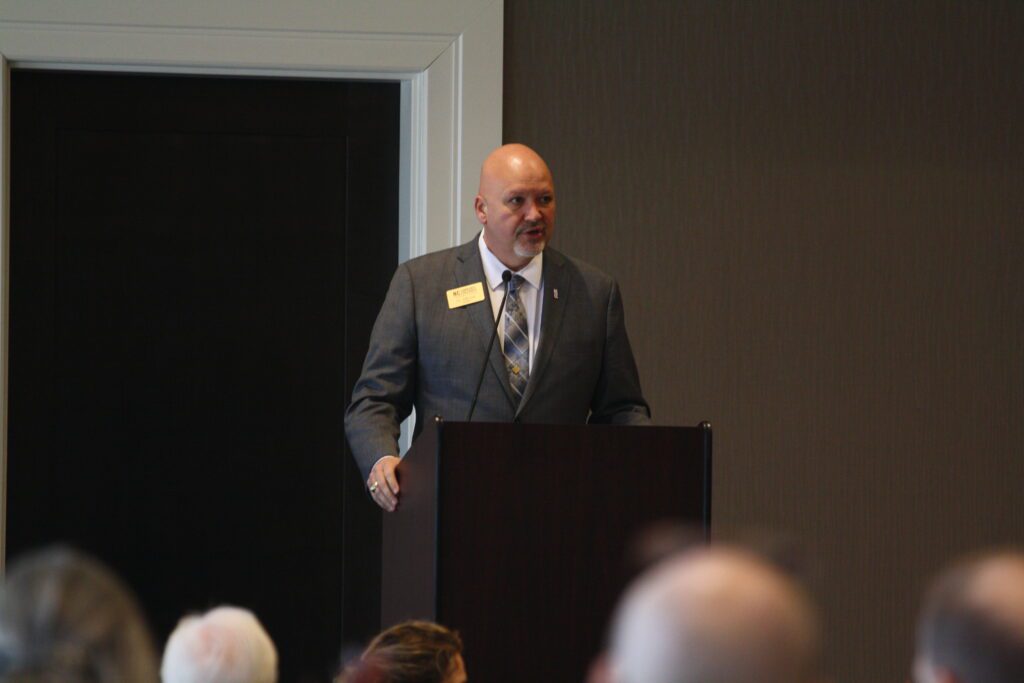
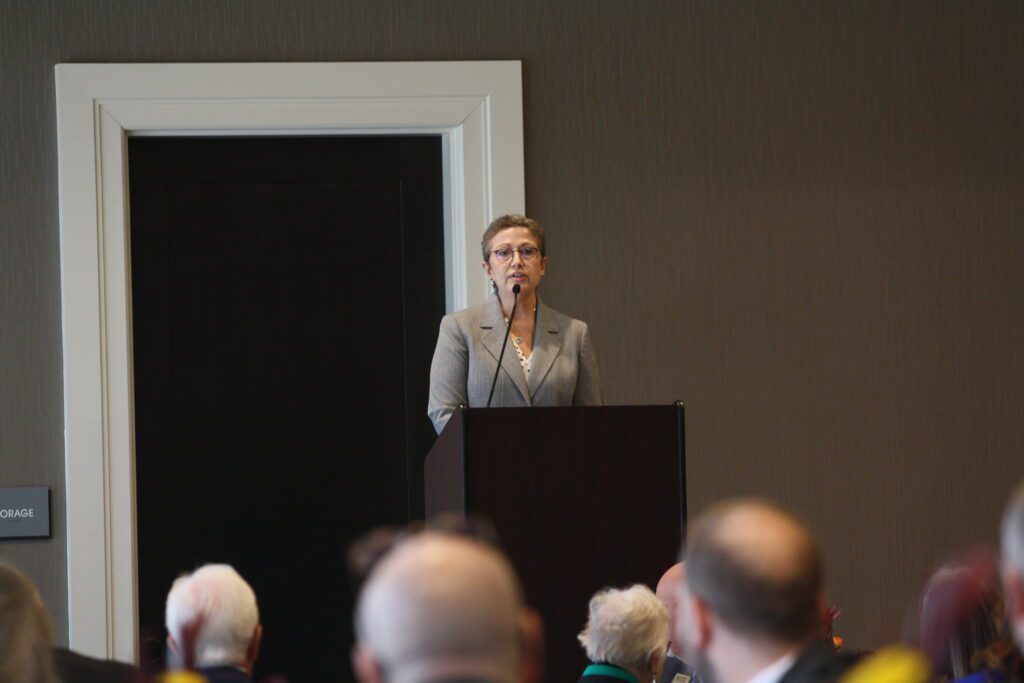
‘The transformative power of education’
During her keynote address, Williams spoke about her firsthand knowledge of the importance of education.
Williams grew up in central South Florida, where she said “college was not the norm,” particularly among Black people. She grew up with her mother, who was blind, and her grandmother, who was a custodian at the local hospital. Both women taught her the importance of a strong work ethic, resilience, integrity, and compassion — lessons that Williams said profoundly influenced her own work and career.
“I faced material poverty, but was extremely enriched in spirit and culture,” Williams said. “Despite financial constraints, they prioritized education for me and my siblings, emphasizing its transformative power.”
She went on to earn her bachelor’s degree from Rollins College, a liberal arts school in Winter Park, Florida. Her plans to attend graduate school were temporarily delayed when she moved back home to take care of her sick grandmother. During that time, she worked as a teacher at the high school she had graduated from.
“It was there that I saw that those who had earned a high school degree and those who had not were experiencing the same quality of life. The real differentiator was the college degree,” Williams said. “The real differentiator for breaking generational stereotypes, for changing the trajectory of life I was witnessing was one that was deeply grounded in the transformative power of education.”
Soon after this realization, Williams made her transition from the K-12 to postsecondary space. She went on to earn her master’s in education from Stetson University, and her Ed.D. from the University of Central Florida.
For more than 20 years, she held multiple leadership positions at Valencia College in Orlando, Florida. And in August 2020, she was named the ninth president of Prince George’s Community College in Largo, Maryland. Serving nearly 35,000 individuals annually, the college is the first choice for higher education for residents of Prince George’s County.
The college, established in 1958, was the first educational institution in the county to integrate under national desegregation laws.
“While we have evolved over the years, the last 35 years have seen us transform into a predominantly Black institution, mirroring the development and the evolution of Prince George’s County into the largest and second most affluent majority African American County in the United States,” Williams said. “Today, we proudly bear the federal designations of a Minority Serving Institution, a predominantly Black institution, and we are an emerging Hispanic Serving Institution.”
Approximately 96% of the college’s student body are students of color, she said. Nearly half (47%) identify as first-generation college students, and 66% receive financial aid — with 29% of those students receiving a Pell grant.
“We embody diversity and inclusion,” Williams said. “As the leader of this phenomenal institution since August 2020, amidst the challenges posed by the COVID-19 pandemic, I have witnessed and experienced both the resilience and the ambition that define our institution.”
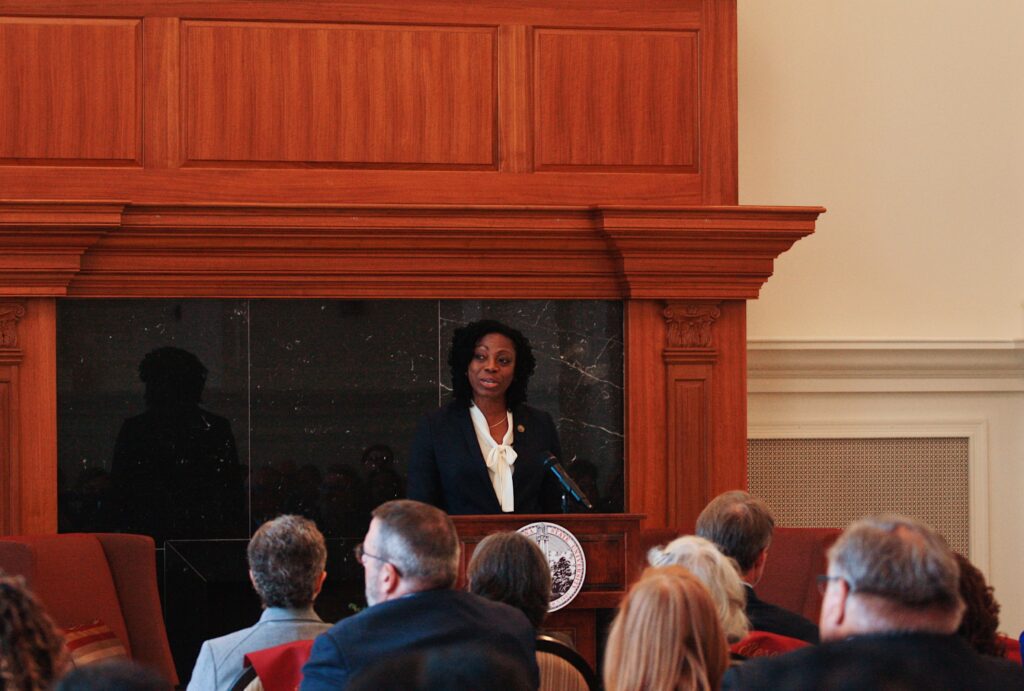
Prince George’s as a case study
In light of the many challenges brought and exacerbated by the pandemic, Williams said Prince George’s Community College decided to take a serious look at its structures and operations.
“The world watches, contemplating whether we, as educators, will seize the moment to learn, proactively adapt, wildly re-imagine, and create new paradigms aligned with our mission,” she said. “Or (if we will) simply risk becoming irrelevant, overshadowed by systems embracing technological advancement, cultural competencies, flexibility, and personalized learning.”
Community colleges must respond to new challenges with “thoughtful, strategic, and innovative frameworks, models, and operational practices that position us for remarkable change and progress,” Williams said.
Williams recommended several questions to kickstart the process. First, what worked? What didn’t work? Second, what do we need to renew? What do we need to let go of?
Finally, she asked, what would it mean to truly be extraordinary?
Williams is currently implementing the Prince George’s Community College new strategic plan and vision: “Dare to Be Extraordinary.” The plan emphasizes “extraordinary” outcomes in student learning, workforce attainment, business partnerships, and community engagement.
At Prince George’s, this work is also guided by a few core commitments: students first, achievement, continuous improvement, empathy, equity, and integrity.
The work was also guided by college data, Williams said, which revealed many pressing needs and inequities. The data highlighted remaining work to be done in student retention, progression, and completion, she said, which allowed college leadership to sharpen its focus.
“We had to let the data tell the story, even when it wasn’t a delightful story,” she said. “Urgency stemmed not from deficit thinking, but from exploring our institutional and community assets and amplifying our qualifications to meet local needs.”
Since then, Williams said the college has seen “early signs of recovery,” specifically an increase in its three-year graduation rate and completion of certificates and degrees.
Near the end of her keynote, Williams left attendees with the following questions:
- How do you define extraordinary in your context?
- Which metrics at your institution are no longer good enough?
- In what ways can you re-imagine the structure and the operations of your college to better serve your students and your employees?
- How do we know we’re making progress?
“Our community colleges are without a doubt the lifeblood of America, offering an unparalleled opportunity to grasp the American dream through education,” Williams said. “Let us recognize that community colleges are not just educational institutions. They are the cornerstones of hope. They are pathways to success, as a true embodiment in this country, of what it means to dare to be extraordinary.”
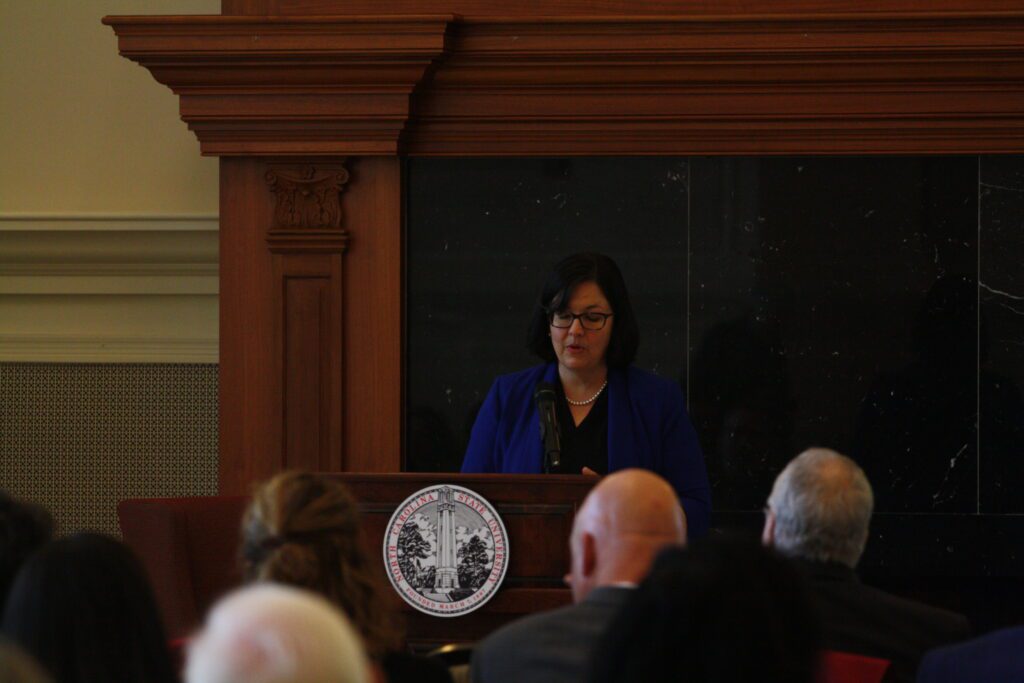
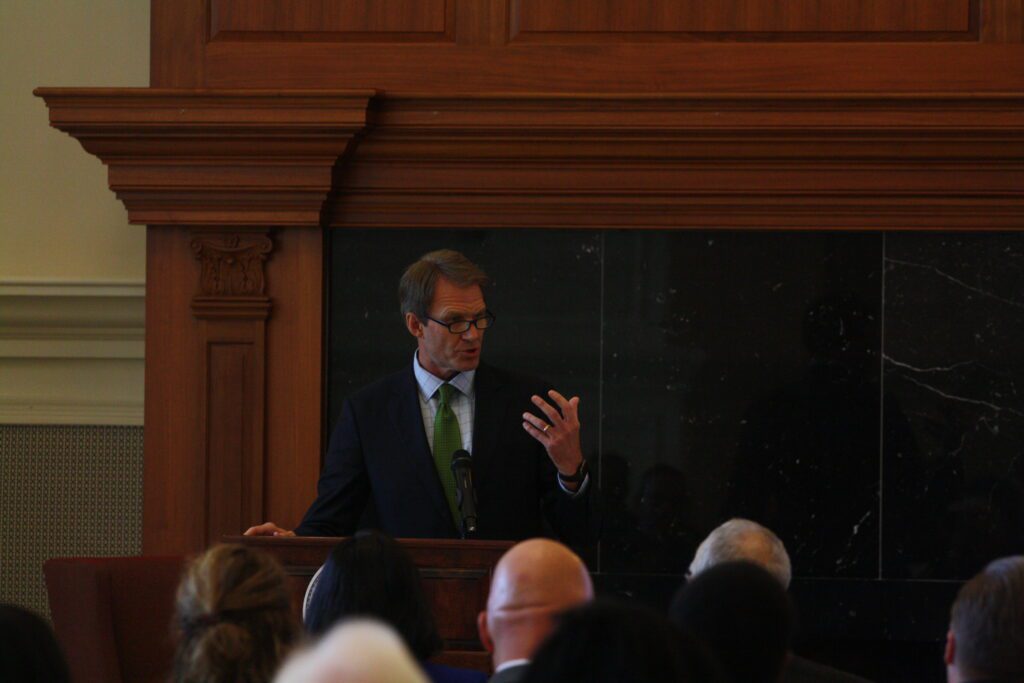
Insights from two N.C. community colleges
Following the keynote, two North Carolina community college presidents offered brief responses: Durham Technical Community College President J.B. Buxton and Haywood Community College President Dr. Shelley White.
Buxton highlighted the history of an increasing emphasis on public education in North Carolina, and asked where we are living up to such a history — and where we are not.
He offered four questions to serve as “a kind of compass” amid change:
- Do we find community in our colleges?
- Do we inspect what our communities expect?
- Where do we need to make more of an impact?
- Where are our peer colleges indispensable to our own success?
Buxton highlighted the state motto, “Esse Quam Videri” — which means, “To be, rather than to seem” — as a great motto for the state’s community colleges as well.
Community colleges must help their students cross the finish line, he said, while also helping connect students to careers that build stability, mobility, and generational wealth.
“It is our job to ensure the romance of the community college is in fact the reality,” he said. “Because in the end — after all the speeches — what speaks last and loudest is not what we say we are, but what the success of our students and communities reveals us to be.”
In Haywood County, White highlighted “the rural response” of community colleges during times of change. In North Carolina, 47 of the state’s 58 community colleges are considered rural, she said. Nationally, there are approximately 260 rural community colleges.
Throughout her response, White referenced the college’s recent work to provide hope in the community after the March announcement of the Canton mill’s closure.
“I believe we are the anchors,” White said. “Anchors for our communities in times of crisis and opportunity.”
White offered several principles for the response of rural community colleges:
- The rural response must be immediate.
- The rural response must be powerful.
- Finally, the rural response must be well-resourced. Here, White mentioned the joint legislative request between Haywood institutions, which successfully led to $60 million in county resources in the new budget.
“Community colleges are the heart of our rural communities, and we are called to meet changing needs,” White said. “We are called to be prepared to the best of times and in times of crisis. The rural response is critical for our future.”
Jaeger said that each of the speakers collectively “illuminated a path forward” for the future of community colleges.
“I believe that their wisdom and expertise will play a pivotal role in shaping a brighter future for community colleges,” Jaeger said. “Ensuring (community colleges) remain beacons of accessible education for all students — for the betterment of our communities.”
